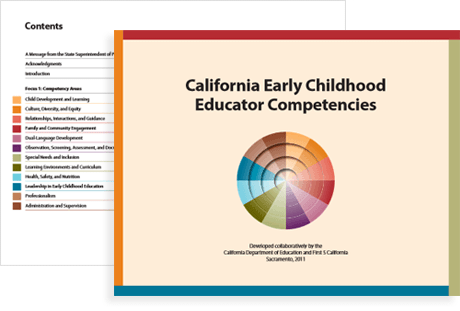We each bring our experiences, perspectives, and worldview to our work — the good, the bad, and all of the in-between. These are what make us who we are and influence our practice with children, families, and colleagues. We also hold in our minds a picture of our ideal selves. Knowing more about yourself can pave the way to becoming the person and the early educator that more closely matches your ideal self. This first Key to Reflection and Inquiry can help you become more self-aware and intentional in examining who you are now and who you want to become.

Your food choices can be influenced by several factors that include: culture, where you live, based on family tradition, or on eating habits established early in life. The way you eat may be a combination of any of these things. Food choices change over time, with economics, lifestyle, location and availability of foods, age, and health.
Exposure to new foods influences your diet and will influence the diet of children and families.
The USDA nutrition campaign website includes this poster for families with preschool-aged children. Visit ChooseMyPlate.gov to download the poster.
Explore the web site ChooseMyPlate.gov. Look for resources that support your program’s nutrition education program. If you do not currently have a strand in your curriculum planning process for nutrition and health, consider what it would take to add it.
Create a plan for nutrition awareness, using resources from this site as the underpinnings. Write the questions and topics that interest you. Explore them with families, with staff, and children. Identify five outcomes you could anticipate from your action. Write up the plan with interactive elements for all members of your learning community.
Use this template to record your observations, thoughts, and feelings. Download the Template
Deepen your understanding of Nutrition in Performance Area 3 in the CA ECE Competencies. Scroll to page 82.
Can you find other places in this competency area that address dispositions and understandings related to nutrition?

Read the Exchange Beginnings Workshop, “Food and Young Children”, May/June 2006.
Visit the California Department of Education Nutrition Resources page, Healthy Eating & Nutrition Education.